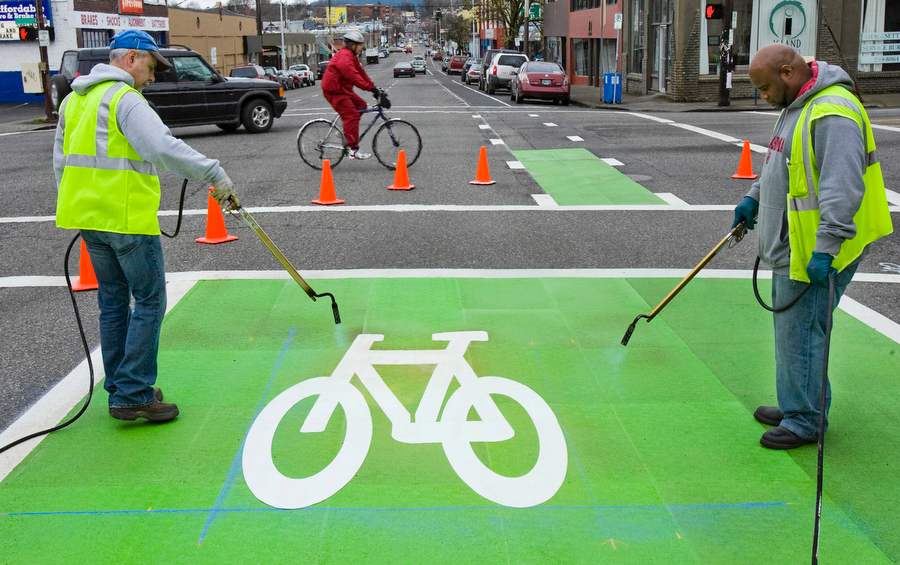BUILT explores the changing city in the US and the challenges that will affect housing, infrastructure, neighborhood cohesion, and equity in the coming years. BUILT is a series of research, installation, dialogue, interview, and performance events of varied scale, including the opportunity for public conversation offered at this blog.
This week’s discussion begins with this photograph:
City of Portland transportation workers install a new bike box at the corner of SE 7th Ave. and SE Hawthorne Blvd. made of thermal plastic and sealed onto the road with propane torches
Bike box and automotive thoroughfare: accommodation or tokenism? Cooptation or change?
Sign and reality, sign and system: what happens when public space becomes public signage?
BUILT is a performance/civic dialogue project and a collaboration of Northwesten University’s Theater Department & Portland, Oregon’s Sojourn Theatre, led by visiting artist Michael Rohd.

I once had a discussion with a friend I lived with in London. I was getting around by bike a lot (London streets are pretty good for cyclists!) and she wanted to start using her bike to get about but was afraid of motorists. Remember, I told her, that cyclists have as much right to use the roads as motorists. The picture above represents what lengths need to be gone to to point this out to road users. It is a shame because I found that cycling around a city was fast, healthy, environmentally sound, and a lot of fun. And maintaining a bike costs less a year than some people spend on petrol a week.
I think it’s a little more complicated than that. American cities, and especially streets were not designed for the bicycle. So, as much right as a cyclist has to the roads, they are not designed to accomodate both cyclists and drivers. Furthermore, sidewalks were really designed for pedestrians and not cyclists. Therefore, to make bikes an actually viable form of transportation in America’s cities, signage such as this is necessary. But I don’t really see it as tokenism, or even accomodation, but re-design. Roads don’t need to say “this is a place for cars”; it’s just built into our psyche. So somehow, if one were to re-design cities to be bike friendly, they also need to re-orient the way we read space. The best way to do that is through signs. I think it is foolish for cities to assume roads are just as good for bikes the way they are. We need thorough signage and redesignation of space to make cities truly bike-friendly.